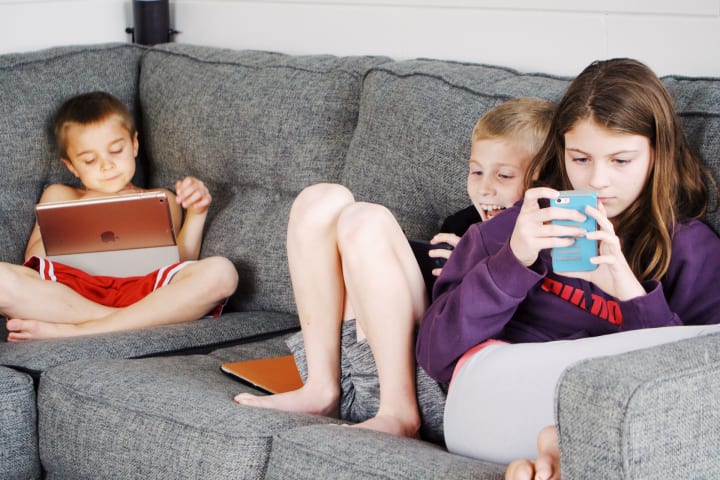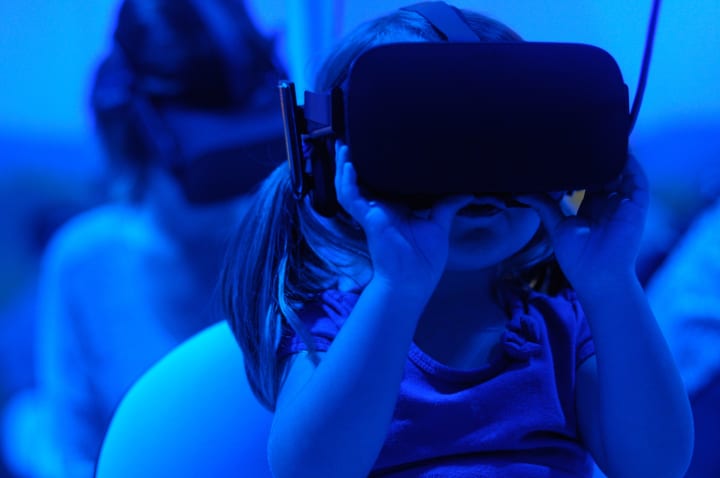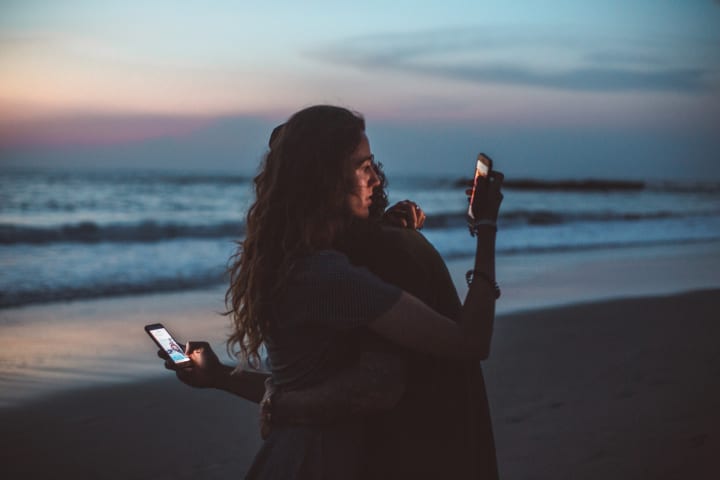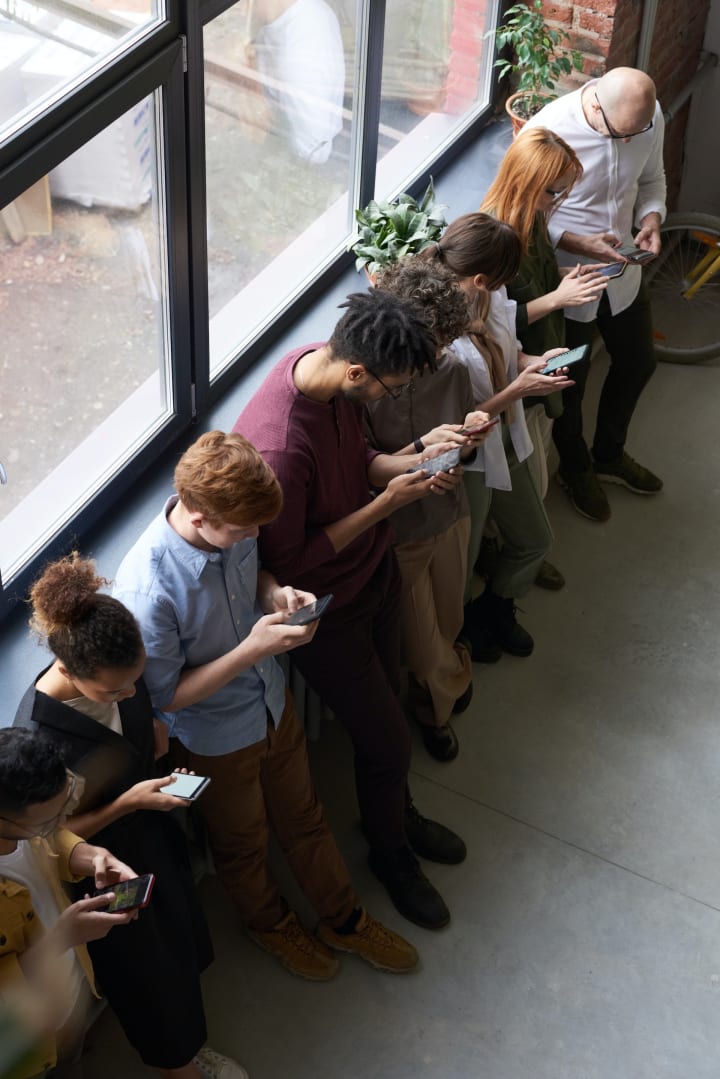
Chamath Palihapitiya is a venture capitalist engineer who once was a senior executive at the social media platform known as Facebook. With his personal take on things, he expressed the negative traits that come with social media. His ideas are compelling due to the fact that they were almost quite valid in my research.
Here’s a bit of Chamath‘s insight along with mine.
1. Lies can be made into truth with the right amount of money
Often, we see many people on the internet who have a high sense of popularity but the question we never ask is what’s behind the scenes of these “popular” media influencers or icons we dare to worship. Is it our business to know? No, but we should never assume an individual is completely like this/that based strictly on their postings.
We live for the fancy glimmer, luxurious lifestyle of famous people but the same way people can catfish their appearance is the same way people can catfish their lifestyles. Identities on social media are an illusion. Even if we think we know a person, do we really? An individual will show you what they feel comfortable sharing. This is why privacy settings are a holy grail to hide or restrict things from a particular set of people.
If we haven’t met the person in real life, we should think about the things we don’t know. Ultimately you don’t know who a person is unless you physically know them in the real world, but even so, some mastermind manipulators are way ahead of the game and can be two-faced.
Chamath states that one area we fall short in is the misinterpretation between truth and popularity. It’s easy to portray this “perfect” lifestyle with money and make people believe it is true. In the digital world, you can paint whatever picture you want. It can be authentic or something false. Either way, we are likely to paint ourselves in a good light, draw away the flaws, and not talk about those dark places because we may feel like we’ll be a downer or seen as a terrible person.
The film “Not Okay” starring Danni Sanders is a great example of living a false lifestyle. It portrays photoshopping oneself in different places, adding special effects, and lying in written Twitter posts. All-in-all she makes a continuous effort to strive for someone she is not, gaining popularity, only to fail in the end.
What’s alarming about the online social world is that we have the ability to customize our lives to however we want (whether that be to our liking or society’s liking). This may be the reason why it’s so addicting. And this may also be why more people are miserable today in their real lives.
What we can do in a false world isn’t necessarily applied to reality. This is why in video games people often get beyond rich, purchase levitating cars, slaughter zombies, have nine lives, go on magical quests, build virtual realities, and obtain futuristic gadgets/deadly weapons. That can be impossible to obtain in the real world or it can lead to serious consequences like jail time or better yet, your life.
Then there are the filters that do more justice than makeup ever could. Facial features are changed, and beauty techniques are applied to enhance our appearance to the point we look unrealistic.
Manipulative tactics can be put in place with money. To deceive a large pool of people while gaining recognition in the process. We align popularity with rightfulness and miss the things that are wrong/hidden from our view.
2. Social media exploits the need for feedback
Chamath describes social media systems as a place filled with feedback loops. He also proceeds to say that feedback loops are similar to drug addiction. We begin to crave artificial feedback from a place that isn’t real, scavenging for more responses out of desperation. We may say things like, “I need more followers.” “I need my views increased.” “I need to be trending or featured on the top page.” The constant reassurance of needing attention becomes an addiction to feedback from other people on the internet.
So, what happens if we do get responses? There’s a chance we can be deprived of the world we live in where we once received a different type of feedback.
Surely, we don’t want to be followed in the real world, this may come off as creepy and stalk-ish, but we may want to be liked by other people. Here’s where there’s a big difference. In the real world you have to build a serious connection, create trust, and give things time. While with social media, acceptance and approval is instant. With one post you can change people's perceptions of you. You can be loved, liked, and shared with the entire world. Basically, put on a pedestal.
Dopamine is known as a feel-good neurotransmitter hormone created in the brain. It is released in satisfying situations whether that be exercise, sexual activity, meditation, eating your favorite foods, playing video games, etc. In comparison to the feedback loop, large surges of dopamine are released, and this is the same for drug addiction.
All of this leaves a series of questions to think about. What happens to the people who abuse the feedback loop too much? What harm is this causing to one’s brain? And is there any way to revert back in a world that is constantly developing more ways to get us sucked into this digital misconception?
3. Social media systems are tearing society apart
Let’s face it. A few years back things were a bit more settled, and now the world is slowly evolving into a new conjunction that leaves many of us lost for words, conflicted, confused, upset, and maybe even startled. More people have social anxiety and are depressed now of days. There are a lot of mixed feelings and controversy over this topic. While still, there is hope for the future, most of society has its doubts about that.
When social platforms were first released, everyone was filled with excitement. This felt like a breakthrough for many of us because we were able to connect with friends, family, and new people across the world without having to travel to them. The only thing we didn’t realize is the cons that came with social media or would develop overtime for us mentally, physically, emotionally, and externally.
On social media today, we're in groups or algorithmic classes as if this is the early days of high school teen years. Instead of coming together and making use of connections and the environment as a whole, we’re more separated. NBC News created a poll on separation, and 64% of Americans agree with this statement. So instead, we are constantly trying to find ways to fit in, dress/look/act like this, and condemn ourselves to gain some type of validation. Strikingly, differences fuel more conflict than unity.
Then there’s cancel culture that controls the media and predicts who’s acceptable and who’s not. If you screw up or say something a lot of people don’t agree with, judgments are made about you, and your actions determine your significance. So, accounts that aren’t likeable are simply banned, reported, and deleted because somehow the rest of us are perfect beings.
If only in the real-world deleting people was this easy.
Finally, we have a shift in connectivity, toys, social interaction, love/relationships, and our attention span.
Let’s explore an examination of this. I will let the imagery speak for itself.
At some point kids were like this:



Now they’re mostly like this:



At some point couples were like this:


Now they’re mostly like this:


At some point society was like this:



Now most of society is like this:


There is so much context that is lacked now. Things aren't as deep and intellectual as they once were. The realization of this seems like it will only come to the light when things get worst for all of us. The urgency in this should not be overlooked.
Chamath warns to take a step back and actually think about how we should be using social media. Understanding the impacts and weighing out what’s best for us and what’s worst for us. And structuring barriers that allow awareness and subtle downtime.
Social media can be useful in many aspects but we should never abuse it. If so, it will have power over us, and we will regret it later when we reflect on how much significant time we wasted. We must be prepared for the implications that come with how we interact in the digital place of social networking.
—
Source credited to:https://youtu.be/MakEIlvlyfE
About the Creator
Reader insights
Outstanding
Excellent work. Looking forward to reading more!
Top insights
On-point and relevant
Writing reflected the title & theme
Excellent storytelling
Original narrative & well developed characters
Expert insights and opinions
Arguments were carefully researched and presented
Eye opening
Niche topic & fresh perspectives
Easy to read and follow
Well-structured & engaging content
Heartfelt and relatable
The story invoked strong personal emotions
Compelling and original writing
Creative use of language & vocab
Masterful proofreading
Zero grammar & spelling mistakes







Comments (11)
Thank you so much. It is a sad reality that social media has itself wrapped around our fingers. Screens are highly stimulating. Thank you for sharing your content and wisdom. Great photos as well. I have rules with loved ones while eating out: phones away. When I spend time in nature, I leave my mobile phone at home.
Really, this is happening in our life today. We realize it but couldn't control from this. Very bad habit
Truth be told , amazing enough there are still people out there that don’t used social media and limit their children on technology. Congrats on top story ❤️👍🥳
Do you often use Facebook?
Some social media can be positive; though it is like you explained, people get carried away, trying to fit in, gain likes, and recreates a reality that is other than their own. Kids and adults alike spend too much time using social media, and we are getting sucked into something less than reality. I remember board games, family time, nights, and days out having fun. Unfortunately everywhere I go now, people are glued to tablets, laptops, mobile phones, and games, even in their own homes, and when they have company. Your article speaks many truths.
Really great message. The photo comparisons were so powerful.
great content inspiring tone
I enjoyed this. I guess I am somewhat old fashioned but the little children with the cell phones disturbed me. I would not want my children to have a mobile phone too young or if I feel like they would sneak behind my back and make a huge mistake that would change their lives and mine. Keep up the excellent work.
Really great message. The photo comparisons were so powerful.
Terrifying and important...thank you for this!
EXCELLENT
This comment has been deleted